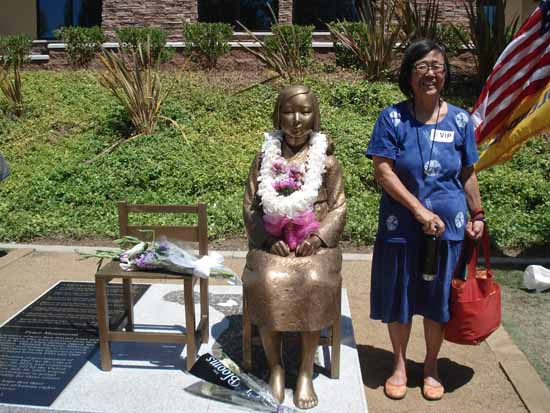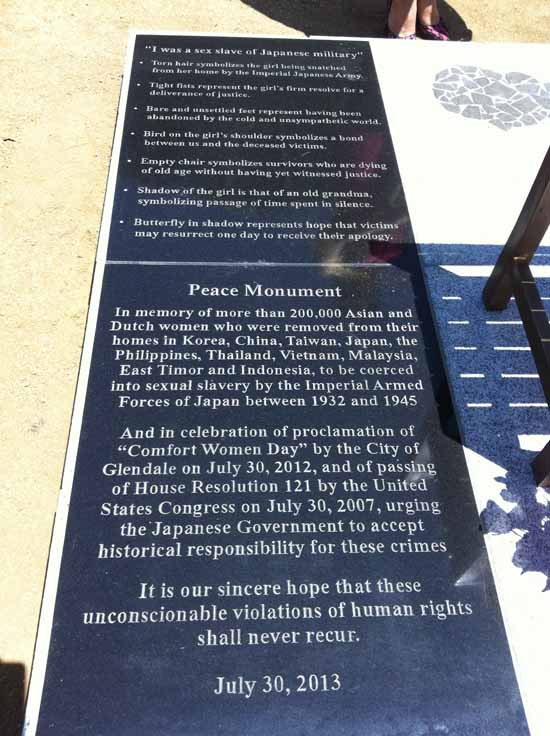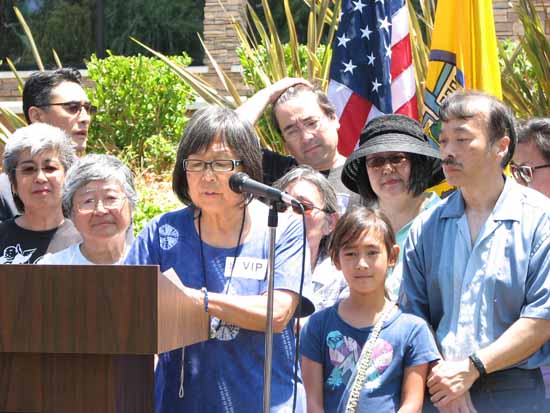Forty five years after forcibly removing almost 120,000 Japanese Americans from the West Coast, the United States Congress passed a bill officially apologizing and authorizing reparations to each individual whose rights had been violated during World War II. After Japan’s attack on Pearl Harbor, Japanese Americans lost their homes, businesses and freedom when the U.S. government incarcerated them in camps across the country without due process, violating their constitutional rights. Both my parents were born here as were two thirds of the community and my grandparents, or the Issei, were permanent residents who were denied the right to become citizens by law.
NCRR helped to lead a grassroots campaign to win redress and we learned many lessons during the ten-year campaign. While many people in this country needed to be educated about the incarceration of Japanese Americans we also learned about others who were facing similar discrimination both in this country and in Japan. In 1988 we were invited to support Koreans and other minorities in Japan who were fighting the fingerprinting required of all aliens, even those born there. We met ordinary Japanese activists and citizens who were supporting efforts to remove this law and later, were asked to support the Chinese slave laborers who were suing the Japanese Government for their treatment in the Hanaoka mines during World War II. Again, the government denied any responsibility and instead placed total blame on the company, Kajima, that ran the mine.
The Nikkei for Civil Rights & Redress has supported and will continue to support the Korean Comfort Women’s demand for an apology and individual reparations from the Japanese Government and understands how important both the apology and reparations are. Japan has said that they settled all claims when they paid reparations as part of the peace treaties after the war, but these monies did not go to the Comfort Women. The United States also stated that they settled all claims with the Japanese American community with the Evacuation Claims Act of 1948 which paid individuals 10 cents on the dollar for loss of property but only if they had receipts. And most did not. Some say that Japan has paid reparations through the Asian Women’s Fund but only 285 women from South Korea, Taiwan and the Philippines have gotten money. Most consider it charity since the funds come, mainly, from private sources, and not a sincere acknowledgement of responsibility by the Japanese government. And although various Prime Ministers have expressed some apology, it has not been directly to the Comfort Women nor has it been strong enough to prevent other officials from denying the existence of the comfort women – some have even justified it. Obviously, much clearer action by the government and greater education is needed to make sure that this history is accurately told. An apology and monetary reparations to each person and an education fund would go a long way in making Japan’s stand on this issue crystal clear.
When the US government passed the Civil Liberties Act twenty five years ago, it helped to heal the pain of those who had suffered in America’s concentration camps and showed that a country can admit its mistakes. When Japan sincerely apologizes and pays reparations to each of the comfort women before it is too late, it will help these survivors heal and show that Japan has learned from its past. This monument to the comfort women is also a reminder to all of us that the abuse and trafficking of women into forced prostitution or domestic slavery continues today, even in this country. Finally, this monument is a tribute to the courage of the Korean Comfort Women who are speaking out and an inspiration to us to continue to stand up for peace and justiice.




